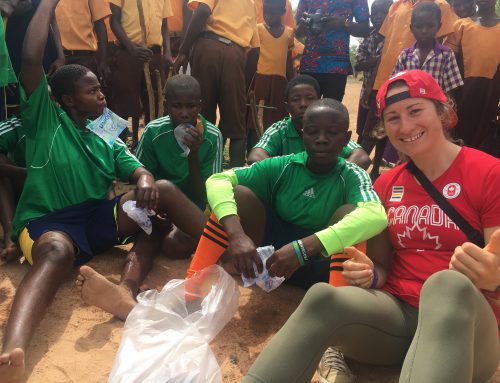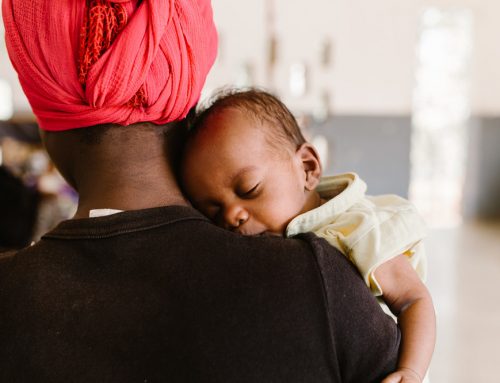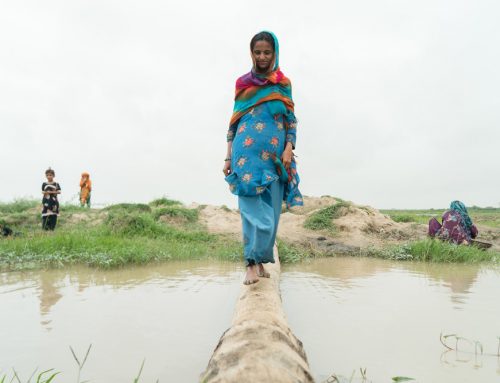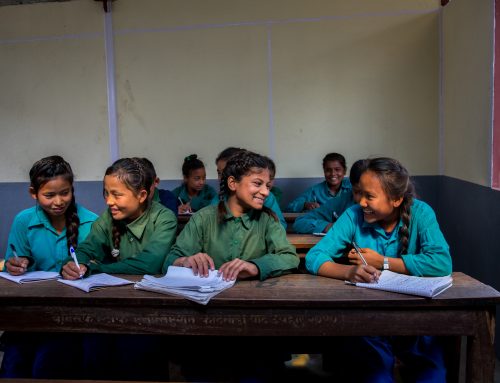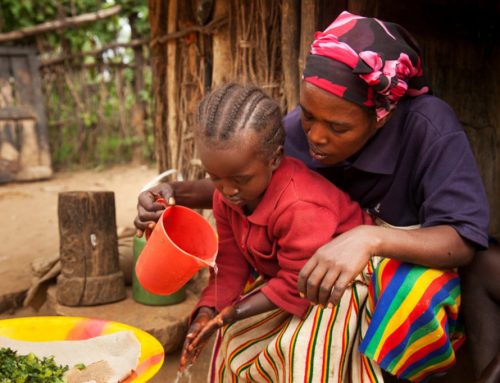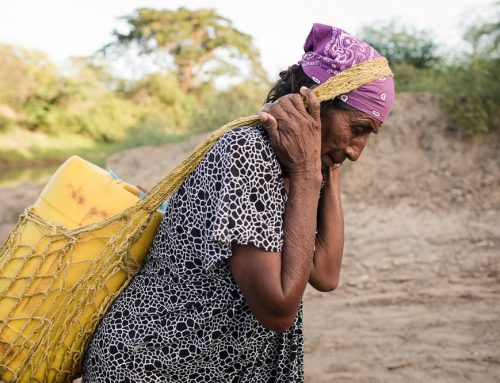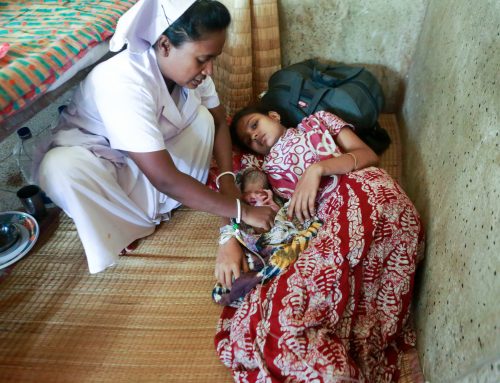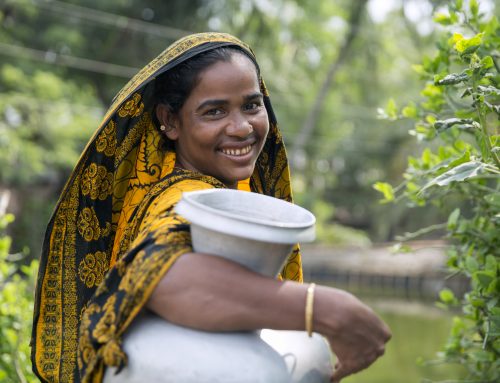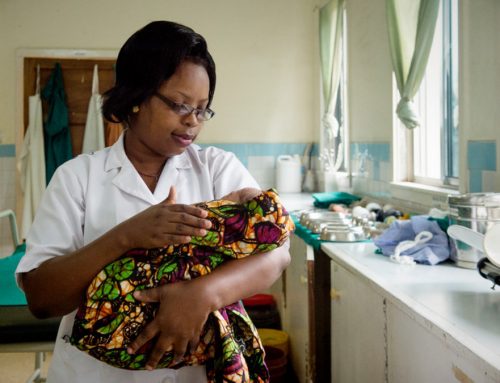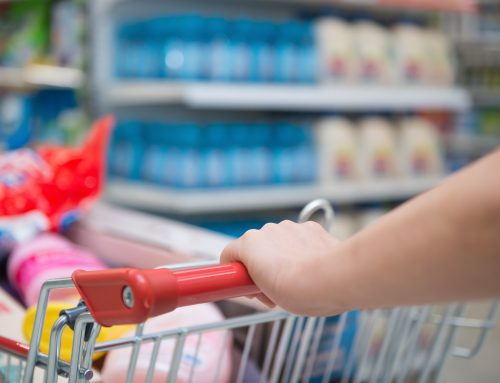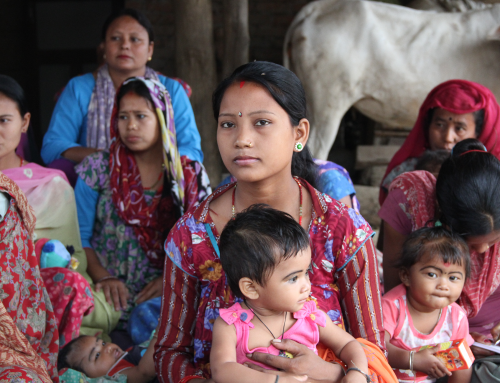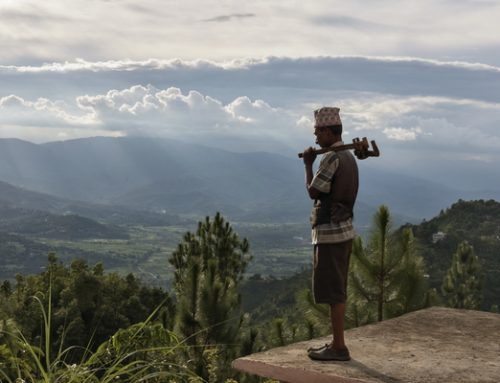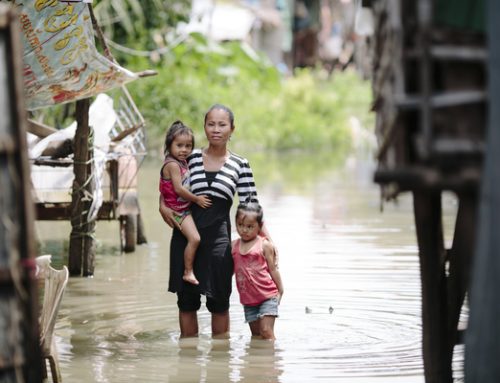Three year old Jebeh Nyagba is being checked by Isattu Jalloh, a health worker in the village of Vaama in Sierra Leone. People come to this clinic from surrounding village. The centre is quite basic, it has a few beds and two health workers. It has no electricity, clean water or proper sanitation facilities. It is frequently short of the medication that is needed to treat patients.
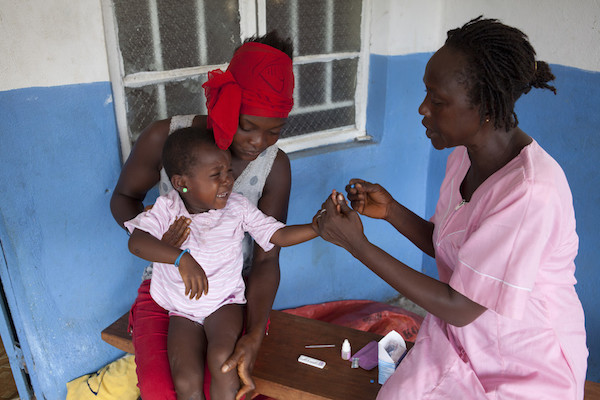
Isatu Nyagba, 26 and daughter Jebeh Nyagba, 3. Health Centre. Vaama, Sierra Leone.
“Every week we can experience diarrhea and vomiting at the centre,” says Isattu. “There is no pure drinking water here, no pump, or hand pump or another way, so we just drink the stream, the river. We have pumps here but they are not working. So we get our drinking water from the stream, where they wash for baths, wash dishes, clothes, everything in that same water.”
It is difficult to describe what it is like for medical professionals in villages like Vaama who have to care for patients without adequate access to clean water or proper sanitation—both essential for good human health.
These basic conditions, often absent in the countries where Wateraid works, have a tremendous impact on the health of these communities. The World Health Organization (WHO) has estimated that 38% of healthcare facilities in low- and middle-income countries lack access to water, 19% do not have adequate sanitation and 35% do not have soap for handwashing.
A lack of safe water, adequate toilets and good hygiene practices is directly linked to fatal diseases and conditions such as cholera and diarrhea. It is also linked with many other health problems such as undernutrition, pneumonia, parasites and blinding trachoma. Most of these diseases are caused by the contamination of drinking water, hands, soil and food with human feces.
Leaders of all UN member states have promised to ensure healthy lives and well-being for all by 2030. This will be impossible without clean water, adequate sanitation and good hygiene in all healthcare facilities.
That is why WaterAid is teaming up with health professionals, on the frontline, delivering health care around the world. We know:
- Clean water, toilets and good hygiene are fundamental to delivering quality healthcare for all patients.
- Without them, millions of newborn babies and mothers are at risk from life-threatening preventable infections every year.
- Better water and sanitation services in healthcare facilities make for a better, and safer, working environment and a healthier and happier workforce.
Join us and take action by signing our global petition. We also have several action materials to help you take your campaign to the next level.
